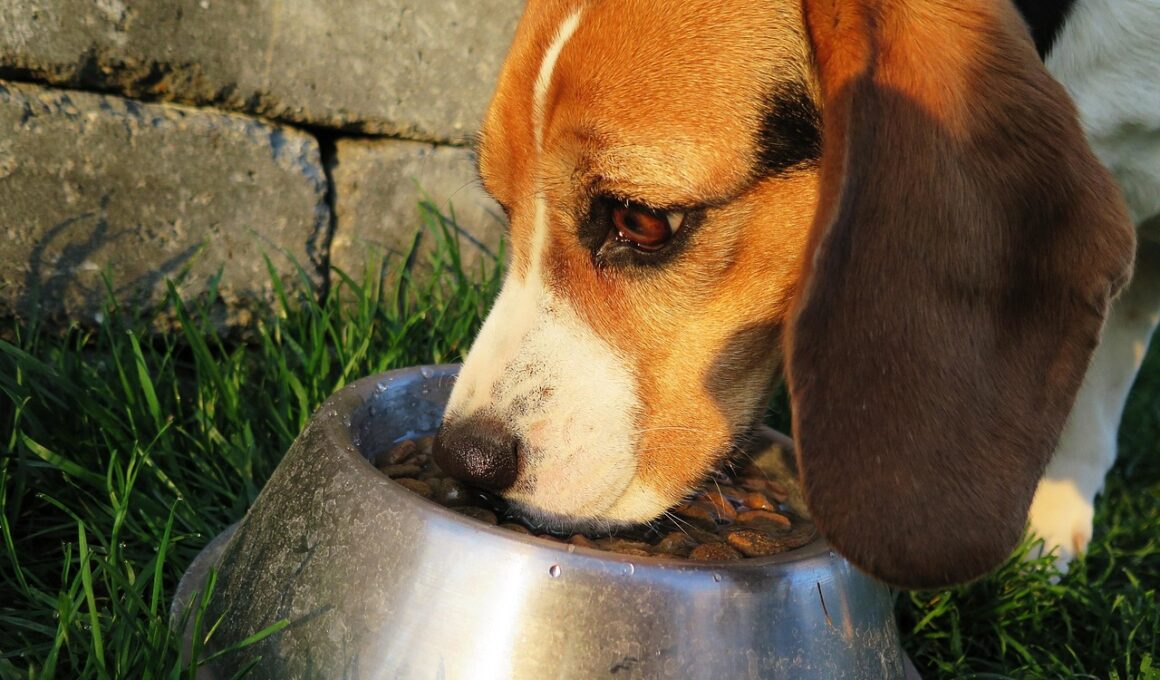Top Causes of Dog Food Recalls and How to Avoid Them
Dog food recalls can be serious business for pet owners dedicated to keeping their furry companions healthy. Understanding the causes behind these recalls is essential for every responsible pet owner. Protein sources that are contaminated, whether from improper handling or manufacturing negligence, often lead the list of dog food recalls. Other reasons involve pesticide residues, specific toxins, and even foreign materials that inadvertently enter food supplies during processing. Understanding these risks can help owners make informed choices regarding the foods they select for their pets. Regularly checking recall lists and being vigilant about sourcing products from reputable companies can significantly reduce the risks involved. Stay updated on manufacturer practices and opt for brands that adhere to strict safety protocols. The FDA offers a comprehensive database of recalls, providing pet owners a valuable resource for staying informed. Every pet parent should regularly review this resource to ensure the food they are feeding their dogs is safe. Keeping abreast of developments in dog food safety is crucial for safeguarding your beloved companion.
10 Common Causes of Dog Food Recalls
Among the frequent causes of dog food recalls, aflatoxin contamination stands out. Produced by molds found on grains, aflatoxins can lead to serious health issues in dogs. Another significant factor contributing to recalls is salmonella contamination, which can affect both dogs and humans handling the food. E. coli and listeria are bacteria that also lead to recalls due to their potential health risks. Included among these issues are improper labeling, where a product may contain allergens that are not disclosed. Chemical residues from pesticides on ingredients can cause recalls as well. Pet owners must definitely consider these factors as they choose foods for their loved ones. Additionally, manufacturing errors such as incorrect ingredient formulations or unintended foreign materials in the food can trigger recalls. Monitoring these elements can safeguard your pets from harmful ingredients. Furthermore, potential nutritional deficiencies and imbalances can also incentivize recalls, particularly if a food does not meet the necessary standards required. The quality of protein sources is imperative in selecting dog food brands, ensuring optimal health is maintained.
Another area to pay attention to is the sourcing of ingredients used in pet foods. Natural disasters can disrupt ingredient supplies, which may lead to compromises in quality. Sourcing ingredients from regions with unstable farming practices can elevate the risk of contamination. Understanding where ingredients originate is paramount for pet owners. When a food company fails to adequately monitor each ingredient’s quality, it can lead to harmful products reaching the marketplace. Moreover, some companies might opt for cheaper ingredient sourcing, sacrificing quality for profit margins. As pets rely on nutritious food for health and vitality, responsible pet owners must support brands committed to transparency and quality assurance. It’s advisable to research the company’s commitment to sourcing and the safety measures they implement to maintain quality. Some brands have been successfully proactive in their ingredient sourcing and have earned various certifications. Choosing to feed your dog food sourced from reputable suppliers can help in avoiding risks associated with recalls and unsafe products, ensuring your dog is fed only the best. Take time to explore your options and choose wisely for the welfare of your beloved companion.
How to Choose Safe Dog Food
Choosing safe dog food requires diligence and a thorough understanding of the industry. First, examine ingredient lists carefully, looking out for whole ingredients which are easier to recognize and verify for quality. Familiarize yourself with the brands that take quality assurance seriously and adhere to rigorous safety standards during production. Look for Southwest companies that conduct regular product testing, both internally and by third-party firms, to ensure safety and quality. Additionally, prioritize brands that follow Good Manufacturing Practices (GMP), as these practices help ensure product safety. Another critical aspect involves reading dog food reviews, allowing you to understand how other dog owners feel about a specific brand’s safety history. Aside from reviews, analyze the company’s response to previous recalls – a company that is transparent during recalls is one that values customer safety. Keep in mind that holistic and grain-free options are available; however, it is essential to confirm that these foods meet standardized nutritional requirements. Knowledge about any potential allergic reactions pets may have will also guide your choice of dog food, making informed decisions more advantageous for your dog.
Regularly checking for dog food recalls is crucial for preventing potential health risks for your pet. There are numerous resources such as the FDA’s official website and other pet safety sites dedicated to tracking recalls. These platforms allow pet owners to stay informed about potential risks related to the food they choose for their dogs. By subscribing to alerts and newsletters, the information about recalls can reach you quickly, allowing you to act immediately if your dog’s food is impacted. Engaging with your local veterinarian can also yield insights about the safest brands and any recent recalls noted within the region. Networking with other dog owners in your community ensures that you have access to shared information about potential safety issues. Alternatively, social media platforms can also provide updated news regarding pet food recalls, this information can be immensely beneficial. Responsible pet ownership requires effort in staying informed and ensuring the continued health and safety of your dog. Utilize these resources to maintain your dog’s well-being through prompt actions following any recall notices.
Understanding Label Information
The importance of understanding label information on dog food cannot be overstated. Reading and comprehending the nutritional information prominently displayed on the packaging is essential for responsible dog owners. Focus on the guaranteed analysis section, which indicates the percentages of nutrients like protein, fat, and fiber a food contains. Recognizing terms like “by-products” versus “meat” can significantly impact your dog’s diet and overall health. Ingredients are typically listed in decreasing order of weight, meaning the first ingredient carries the most substantial amount found in the food. Also, identifying recognized quality assurances such as the Association of American Feed Control Officials (AAFCO) seal can further guide your choices. The AAFCO label indicates that a product meets the nutritional guidelines, which are essential for maintaining your pet’s health. Additionally, date codes and batch numbers found on dog food packaging can provide essential information regarding freshness and recalls. Regularly educating yourself about what various ingredients and regulations mean will empower you to make well-informed decisions concerning your dog’s nutrition. Proper understanding of labels also lets you avoid chances of purchasing affected products going forward.
Finally, always examine the manufacturer’s reputation in the pet food industry. Some companies have well-established histories of safety, quality, and transparency. Support brands that cultivate close relationships with their customers, showcasing an unwavering commitment to pet health. Companies that have had multiple recalls might indicate negligence in their production processes, and it’s prudent to exercise caution when considering such brands. Additionally, companies that are active in research, innovation, and continuous quality improvements tend to be more reliable choices. Engage in conversations with fellow dog owners about their experiences and trust their insights regarding various brands. Furthermore, consider contacting manufacturers directly with questions about their quality control measures. Avoiding inferior or potentially harmful brands can significantly enhance your dog’s health and nutrition. Meanwhile, supporting responsible companies contributes to the greater good in the industry. Always remain vigilant about the food you choose for your furry friends; their health and happiness depend on informed decisions and quality dog food selections.
Conclusion
In conclusion, dog food recalls present risks that conscientious pet owners must continually navigate. Understanding the various factors that contribute to recalls, such as ingredient sourcing, manufacturing practices, and quality assurance protocols is vital. Keeping abreast of recall information, examining labels, and prioritizing reputable brands minimizes health risks associated with unsafe dog food. Engaging with other dog owners, utilizing recall resources, and staying informed empower families to make excellent choices for their pets’ well-being. Ultimately, the health of your dog is greatly influenced by the choices made regarding food selection. By supporting companies that engage in sustainable practices and uphold high safety standards, responsible pet owners contribute to a healthier industry overall. This reflectiveness ensures that future dog food recalls can be managed effectively while nurturing your canine’s health. Moreover, an informed dog owner contributes immensely to preventative measures within the dog food industry. When every owner focuses on quality, recalls can become a problem of the past. Remember that your attention to detail today leads to a brighter, healthier future for your furry companion.


